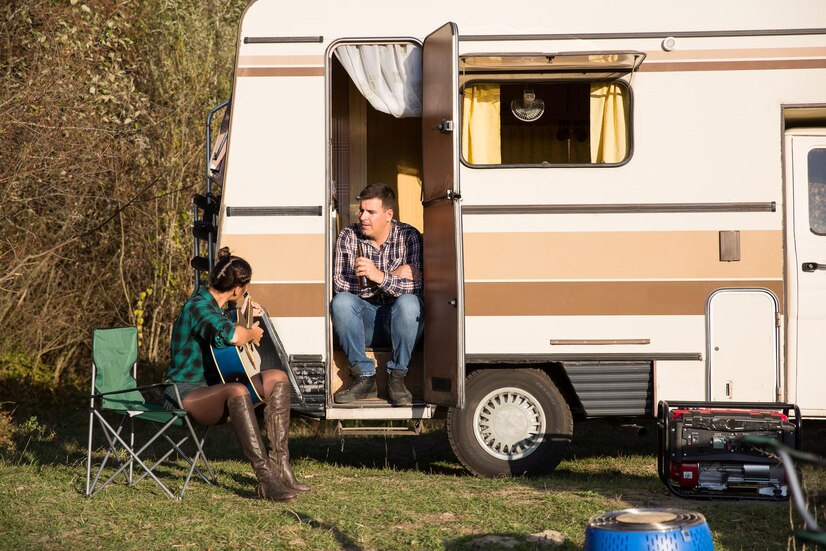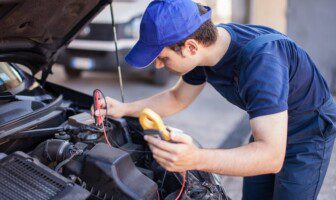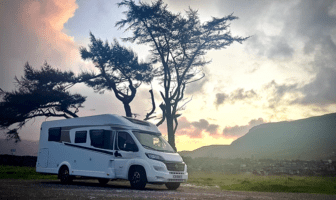
Recreational vehicles provide a unique way to travel and see the world. With an RV, you can explore the open road while enjoying the comforts of home. However, RVs require regular maintenance and occasional repairs to stay in top condition. Understanding the ins and outs of RV maintenance can help keep your motorhome or camper running smoothly for years of adventure.
Choosing A Repair Shop
Finding a reliable shop is critical when it’s time for RV repairs. Look for a repair facility specializing in RVs with certified technicians with experience working on motorhomes and campers. Shops affiliated with major RV dealerships are often a wise choice. Facilities offering mobile repair services can be convenient if you need on-site work at a campground or other location.
Ask Around
Get references from other RV owners to find reputable shops known for quality work. Members of RV clubs and forums are great resources for repair facility recommendations in your area.
Consider Capabilities
Find out what services a shop provides to ensure they can handle your RV’s maintenance and repair needs. Some facilities focus on areas like generator service or bodywork, while others offer a full range of general repairs.
Check Credentials
Look for shops whose technicians hold certifications from industry organizations like RVIA or RVDA. These credentials indicate proper training and expertise in RV repair.
Read Also: Tips To Choose A Good Canandaigua NY Auto Repair Service
Compare Costs
Request estimates from a few facilities to compare rates. Beware of shops that seem abnormally cheap—rock-bottom pricing may indicate cut corners.
Common Maintenance Needs
Keep your RV running great and avoid breakdowns by staying on top of these key maintenance tasks:
Fluids
Regularly check fluid levels for the engine, transmission, generator, and chassis. Top off or change fluids as specified in your owner’s manual.
Batteries
Inspect batteries and clean corrosion from terminals. Check charge levels and load test when servicing. Replace batteries every few years or as needed.
Propane System
Examine propane lines and fittings annually for leaks or damage. Refill propane tanks regularly. Replace regulators and hoses every 5-10 years.
Roof
Inspect roof seams and seals yearly. Reseal as needed to prevent leaks. Wash and apply UV protectant to roof annually.
Appliances
Clean fridge grills and vents to improve airflow. Inspect stove burners and oven. Have LP gas appliances checked by a certified technician.
Heating/Cooling
Clean air conditioner filters monthly during use. Have A/C professionally serviced each year. Inspect furnace exhaust and heat ducts regularly.
Generator
Change oil and filters per manufacturer directions. Test under load at least monthly. Schedule professional generator service annually.
Tires/Wheels
Check tire pressure and wear before each trip. Inspect lug nuts closely. Balance and align wheels as needed. Replace tires every 5-7 years.
Where To Go For Repairs
So where should you turn when your RV needs fixing?
Dealership Service Centers
Many RV dealerships have service departments that work on the brands they sell. Technicians are familiar with specific models and can be a good option for warranty repairs. However, dealership labor rates are often higher than independent shops.
Independent RV Repair Shops
Independent RV repair facilities specialize in servicing all RV makes and models. They typically offer more competitive rates than dealers and provide warranty-approved repairs as well. Look for a well-established independent shop with experienced, certified technicians.
Mobile RV Repair
Can’t bring your RV in for service? No problem – many shops provide mobile repair services right at your location. From minor repairs to maintenance, mobile techs come to you wherever your RV is parked. This convenient option allows you to get issues addressed without moving your home on wheels.
RV Component Manufacturers
For complex system issues, repairs directly through the manufacturer’s service center may be best. Major component makers like Onan or Dometic have factory-authorized facilities to handle intricate repairs on their products. Though not always nearby, their expertise with specific components can be worth the travel.
DIY Repairs
Some basic maintenance tasks like changing wiper blades or inspecting batteries you can easily tackle yourself. But repairs involving roof, electrical, plumbing, or propane systems are best left to the professionals. Know your limits to determine what’s DIY and what’s better handled by a certified technician.
Finding A Shop In St George
The sunny St. George, UT area attracts countless RV travelers. To repair your rig while visiting St. George or southwest Utah, turn to St George RV repair. With a 17-bay facility near downtown, RV Nation offers maintenance, collision repair, fiberglass work, and more for motorhomes and campers. Their experienced techs are certified to service all RV types.
Plus, RV Nation’s mobile services mean they can dispatch an expert repair tech right to your campsite or parking location. Avoid the hassle of trailering your RV for service. Simply call RV Nation and their mobile RV repair team will come to you, handling repairs, maintenance, and minor issues.
So, for all your RV service needs in St. George, trust the experts at RV Nation. Their full-service shop and convenient mobile repair provide solutions to keep your RV road-ready.
In Summary
- Perform regular maintenance on items like fluids, batteries, propane systems, appliances, and more
- Compare multiple repair shops on reputation, capabilities, credentials, and cost
- Use dealer service centers for warranty work, independent shops for better rates
- Consider mobile services for on-site repairs without moving your RV
- For complex issues, go to authorized component manufacturer service centers
- In the St. George area, RV Nation offers certified shop repair or mobile RV repair
Keeping up with maintenance and using qualified professionals for repairs will help ensure your RV stays in top shape for adventure. With a bit of care and preparation, your motorhome or camper can provide comfortable travels for years down the road.
Read Also:




























